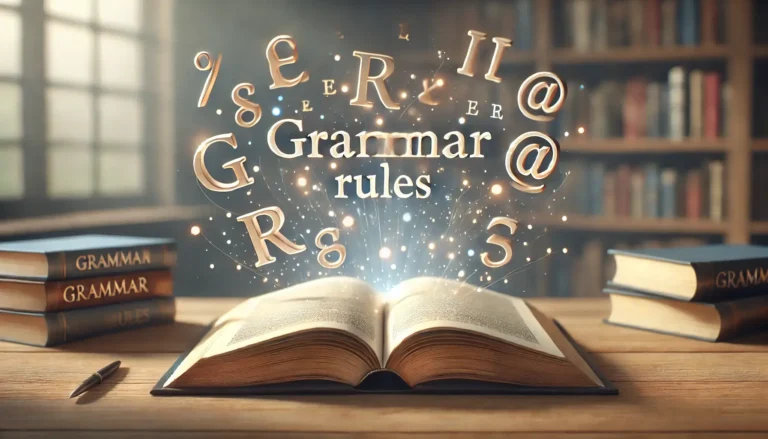Interjections are exciting, expressive parts of speech that allow us to convey emotions quickly and effectively. They don’t fit neatly into the grammatical rules of sentences because they’re used to show strong, sudden feelings.
Think of them as emotional shortcuts—words we throw into conversations or writing to communicate how we feel in the moment. Let’s explore interjections, their types, and how to use them with examples and illustrations.
Shop laptop & School bags
Check out top-quality laptops and stylish school bags at Zed PCs – perfect for work, study, and on-the-go convenience! Shop now and find unbeatable deals on the essentials you need. For more information, don’t hesitate to get in touch with the website directly. Come one, come all.
What Are Interjections?
An interjection is a word or phrase that expresses emotion or sudden feelings. They stand alone or are used in sentences, often set apart by commas or exclamation marks.
The word comes from the Latin roots “inter” (meaning between) and “jacere” (meaning to throw), meaning they are “thrown in” between thoughts or sentences to show surprise, joy, frustration, or other emotions.
Example 1:
- Yikes! That’s a big dog!
- Oh! I didn’t see you there.
In these sentences, Yikes! and Oh! are used to express surprise, making them interjections.
Types of Interjections (with Examples and Illustrations)
Interjections can express a variety of emotions. Below are some common types, each with plenty of examples to help clarify.
1. Interjections of Surprise
These interjections show astonishment, disbelief, or shock.
Examples:
- Whoa! That roller coaster was fast!
- Gasp! I didn’t know you were coming today.
- What?! You’re moving to another country?
Illustration:
Imagine a person seeing fireworks for the first time. They might say, Wow! as they look up in awe.
The word Wow! reflects their immediate, amazed reaction, making it an interjection of surprise.
2. Interjections of Joy
These are used to show happiness, excitement, or contentment.
Examples:
- Yay! We finally reached the top of the mountain.
- Hooray! It’s my birthday today!
- Yippee! School’s out for summer!
Illustration:
A child celebrating their birthday might shout, Yippee! when they see their birthday cake. The word captures their excitement and happiness in a single word.
Shop laptop & School bags
Check out top-quality laptops and stylish school bags at Zed PCs – perfect for work, study, and on-the-go convenience! Shop now and find unbeatable deals on the essentials you need. For more information, don’t hesitate to get in touch with the website directly. Come one, come all.
3. Interjections of Pain
Interjections can express discomfort, pain, or suffering.
Examples:
- Ouch! I just burned my hand.
- Ow! That really hurt when you stepped on my foot.
- Ahh! My back is sore from sitting too long.
Illustration:
If someone accidentally bumps their knee against a table, they might say, Ouch! The word communicates their pain in that moment, without needing a full sentence.
4. Interjections of Disgust
These are used when someone finds something unpleasant or distasteful.
Examples:
- Ew! That smells terrible.
- Yuck! I don’t like the taste of this soup.
- Ugh! This room is too messy.
Illustration:
Imagine a person walking into a room filled with bad smells. They might wrinkle their nose and say, Ew! The interjection quickly and clearly expresses their disgust.
5. Interjections of Relief
When you finally solve a problem or escape a stressful situation, interjections of relief are often used.
Examples:
- Phew! That was close, but we made it.
- Ah! Now I can relax after a long day.
- Thank goodness! The storm has passed.
Illustration:
After narrowly avoiding an accident, someone might exclaim, Phew! This word expresses their relief at avoiding danger.
6. Interjections of Hesitation or Confusion
These show uncertainty, doubt, or the need to pause and think.
Examples:
- Um… I’m not sure if I agree with that.
- Hmm… Let me think about your question.
- Er… I don’t know if I should say anything.
Illustration:
A student trying to answer a tricky question in class might say, Um… while thinking of the correct answer. This interjection signals hesitation and uncertainty.
Standalone Interjections
Many interjections can be used all by themselves, without needing additional context or explanation. These standalone interjections can express strong emotions and are often followed by an exclamation point.
Examples:
- Oh no! I forgot my keys.
- Wow! This place is beautiful.
- Oops! I spilled my drink.
Illustration:
When someone realizes they made a mistake, they might say, Oops! The word, used alone, immediately tells you how they feel without needing to explain further.
Shop laptop & School bags
Check out top-quality laptops and stylish school bags at Zed PCs – perfect for work, study, and on-the-go convenience! Shop now and find unbeatable deals on the essentials you need. For more information, don’t hesitate to get in touch with the website directly. Come one, come all.
Interjections in a Sentence
Sometimes, interjections can be used within a sentence to add emotional emphasis. When this happens, the interjection is usually set apart by commas, parentheses, or dashes to show that it’s separate from the rest of the sentence.
Examples:
- I may not have finished, but, hey, I gave it my best shot.
- She made a slight (ahem) error in the calculations.
- You mean we’re going on a trip tomorrow (yay!)?
Illustration:
A sentence like “I’m happy, yay, I passed the exam” shows how the interjection yay adds excitement while remaining within the sentence.
Using Interjections in Formal vs. Informal Writing
While interjections are common in casual writing and speech, they’re typically avoided in formal writing. In formal writing, it’s important to use a more professional tone, and interjections may seem too emotional or informal.
Example:
- Informal: Yay! I got promoted!
- Formal: I am pleased to announce that I have received a promotion.
Punctuation with Interjections
Most interjections are followed by an exclamation point, especially if they are standalone. However, when used within a sentence, they are often set off by commas or parentheses, depending on the strength of the emotion.
Examples:
- Exclamation Point:
- Whoa! That’s incredible.
- Yikes! That’s a massive spider.
- Commas or Parentheses:
- The test was difficult, wow, but I managed to finish.
- This pizza is (yum!) absolutely delicious.
Illustration:
When something shocking happens, you may use an exclamation point, like in Yikes! It adds emphasis and energy to the expression.
Shop laptop & School bags
Check out top-quality laptops and stylish school bags at Zed PCs – perfect for work, study, and on-the-go convenience! Shop now and find unbeatable deals on the essentials you need. For more information, don’t hesitate to get in touch with the website directly. Come one, come all.
Conclusion
Interjections bring conversations and writing to life by adding emotional depth and spontaneity. Whether you’re expressing joy, frustration, surprise, or relief, interjections provide a quick and effective way to communicate feelings.
Next time you say, Oh!, Yay!, or Oops!, remember—you’re using interjections to convey your emotions instantly. Isn’t that neat?







